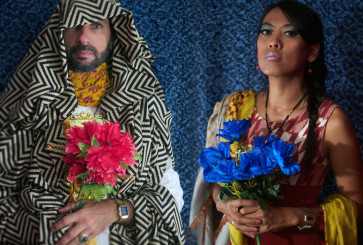Popular Reads
Top Results
Can't find what you're looking for?
View all search resultsPopular Reads
Top Results
Can't find what you're looking for?
View all search resultsChanging the narrative: contemporary musicians take on 'Genjer-Genjer'
The song ‘Genjer-Genjer’ is often associated with a scene of brutal slaughter in the Indonesian pseudo-docudrama Pengkhianatan G30S/PKI.
Change text size
Gift Premium Articles
to Anyone
T
he song “Genjer-Genjer” is often associated with a scene of brutal slaughter in the 1984 pseudo-docudrama Pengkhianatan G30S/PKI (Sept. 30 Treachery of the Indonesian Communist Party). Despite that, history tells a different story about the song.
In the movie G30S/PKI, a scene shows members of the Indonesian Women's Movement (Gerwani) circling and slashing the faces of the seven generals who the film shows as having been kidnapped by members of the Indonesian Communist Party (PKI).
In the background of the scene, the song “Genjer-Genjer” quietly plays. That moment forever associates the song with that violent incident --turning it into an anthem for a massacre.
Addressing Japanese subjugation
Originally composed by Muhammad Arief in the 1940s, “Genjer-Genjer” became a “PKI song” during the New Order government’s reign. However, author Utan Parlindungan in Mitos Genjer-Genjer: Politik Makna dalam Lagu (The myth of “Genjer-Genjer”, the politics of meaning in song) writes that the song was originally written to protest the oppression of the Japanese regime during their occupation of Banyuwangi, East Java.
Under the Japanese occupation, Banyuwangi’s Using people suffered a long famine. Genjer, an aquatic plant that was originally used as animal feed and considered a weed, was the only thing that kept the community from dying of hunger. Part of the song’s lyrics go:
“Genjer-genjer mlebu kendhil wedang gemulak



















